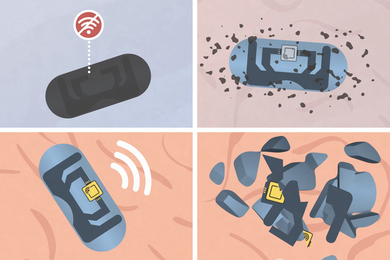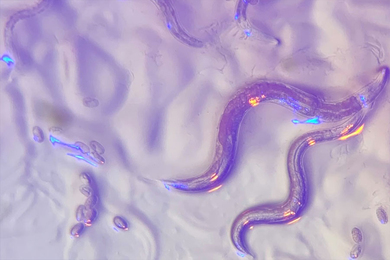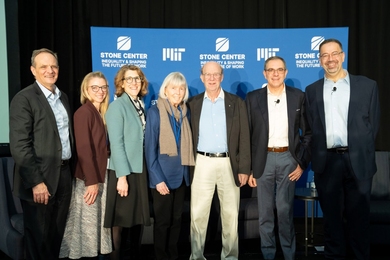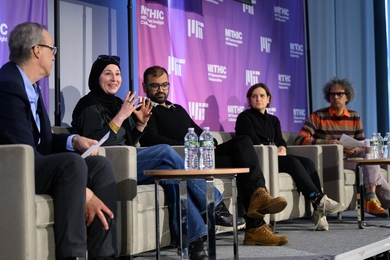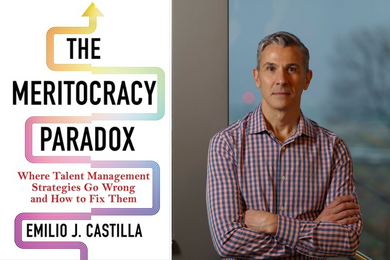In another effort to make recycling easy and convenient for MIT community members, the Environmental Programs Task Force (EPTF) has purchased more bins for use in smaller conference and meeting rooms.
The green-topped bins, some of which are already located in common areas throughout campus, are for commingled recyclables (glass bottles, aluminum cans and plastics numbered 1 through 7). The blue-topped bins are for mixed paper, including all white and colored stock, newspapers and magazines, envelopes (with or without plastic windows), manila envelopes (with clip removed), Post-It notes and carbonless forms. The outdoor recycling bins are a different style but can be used for recycling the same items listed above.
The newly purchased bins are being distributed to meeting rooms that were identified as good locations for recyclable materials. Some additional bins are still available, so anyone who manages a conference room that doesn't yet have a set of recycling bins may send e-mail to Kevin Healy, recycling coordinator in Facilities, at recycling@mit.edu.
"MIT's recycling program is still strong, but recently our recycling levels have dropped, and we really need the community's renewed participation in order to reach our overall recycling goals," said Bill van Schalkwyk, assistant director of the Environmental Programs Office.
As part of Massachusetts Recycles Day on Nov. 15, the MIT student environmental group SAVE (Share a Vital Earth) will have a booth in Lobby 10 tomorrow and Friday. They will offer information on recycling and recycled materials, give away houseplants and sell mugs. The 16-ounce plastic mugs with lids are $3 each or $5 for two. Dining Services offers a discount on drinks when community members bring their own 16-oz. mugs to Aramark locations. (The discount is 5 cents off for a 16-oz. cold beverage and 10 cents off a 16-oz. hot beverage.)
The EPTF was formed in the summer of 1999 by Jamie Lewis Keith, managing director for environmental programs and risk management and senior counsel, as a way to bring together staff and students (including SAVE) who were working on environmental initiatives. The collaborative efforts of EPTF have included not only MIT's expanded recycling program, but also initiatives around greater use of recycled products.
A version of this article appeared in MIT Tech Talk on November 14, 2001.
